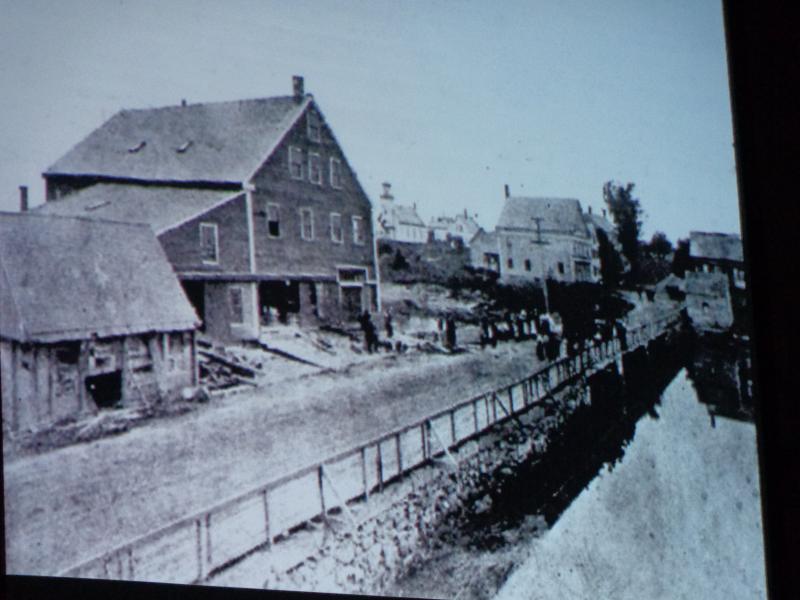SOUTH THOMASTON – Iron rail ties, blacksmithing remnants, the cement base of a telephone booth. They all have been dug up in the two-year excavation project, which precedes of a state bridge reconstruction. But an unearthing has local historians musing about what South Thomaston might have been, had Reverend Samuel Baker planned religious community come to fruition.
Just after the town celebrated its Little Red School House Bicentennial last month, and as ‘archeologist by default’ Charles Jacobs researched 1850s documents for a different reason, the revelation surfaced.
In 1858, Rev. Samuel Baker had spearheaded a campaign to create a Christian society near the village.
“I mentioned this to the historical society,” Jacobs said. “It certainly piqued their curiosity. They said it’s kind of like a ‘gee whiz’ or ‘eureka’ type of thing. Everyone wants to know more of what could have been.”
Baker planned for 16 dwellings on 700 acres, everything needed, including a seminary, to keep the pure and orderly within, and the heathens out.
Live, work, learn, worship, die.
“Here we have a potential city of refuge,” Baker wrote in one of the documents. “The light of the world, if you will.”
Hundreds of such utopian societies existed throughout the U.S. during the 1800s, according to a History Channel article written by Elizabeth Dunn. They were promoted as "heralding in a new age in human civilization.” Founders were usually charismatic leaders with high religious or secular moral ideals.
Dunn's article listed five notable communities:
Brook Farm (1841-1846): The Transcendentalist Romance, in the West Roxbury, Mass., area. This was known as the first secular community. The idea was to have members farm the land together so they'd have time afterward to pursue their personal literary or scientific interests.
Fruitlands (1843-1844): The Farm Without Farmers, in Harvard, Mass. Members were not allowed to consume meat or alcohol, enjoy hot baths, use any form of animal labor, or drink anything but water. The community lasted four months.
New Harmony (1825-1829): The Boatload of Knowledge, in Indiana. This was a community of scientists that thrived for four years until members started disputing over money.
Oneida (1848−1881): The Complex Marriage. "Monogamy was thoroughly rejected, and all decisions about childbearing and procreation were handled by committee."
The Shakers (1745-): The Simple Life. One small community still exists in rural Maine.
According to Jacobs, Baker considered South Thomaston to be a flourishing city with its tidal mills, railway and seafaring transportation, woodlands, shipbuilding, and burgeoning lime industry.
"Itinerancy and location are both proper," Baker wrote. "But location is first."
"Location, location, location," Jacobs repeated.
Baker needed to raise $10,000 for a plot of land within sight of the village that had a property bond close to lapsing, according to Jacobs. He planned to make personal financial sacrifices and was lining up investors for his ideal community.
Yet, when he died a year later, so too did his 'light of the world' planned community.
Ironically, Baker was buried next to his nemesis, Elisha Snow, who'd settled in South Thomaston years before Baker, and was known as the first Baptist of the modern definition.
Bridge excavation at the north side of the bridge has recently commenced. According to Jacobs, Dr. Leith Smith of the Maine Preservation Office will be leading an excavation of the supposed half-timbered structure site to the southeast quadrant of the bridge Wednesday, September 27.
In October, the bridge will be closed completely for two weeks while construction crews tear down and rebuild again.
See our previous articles:
No historic registry for South Thomaston archeology dig, bridge replacement to start in 2017
South Thomaston archeology dig unearths evidence of early settlements
Reach Sarah Thompson at news@penbaypilot.com



























